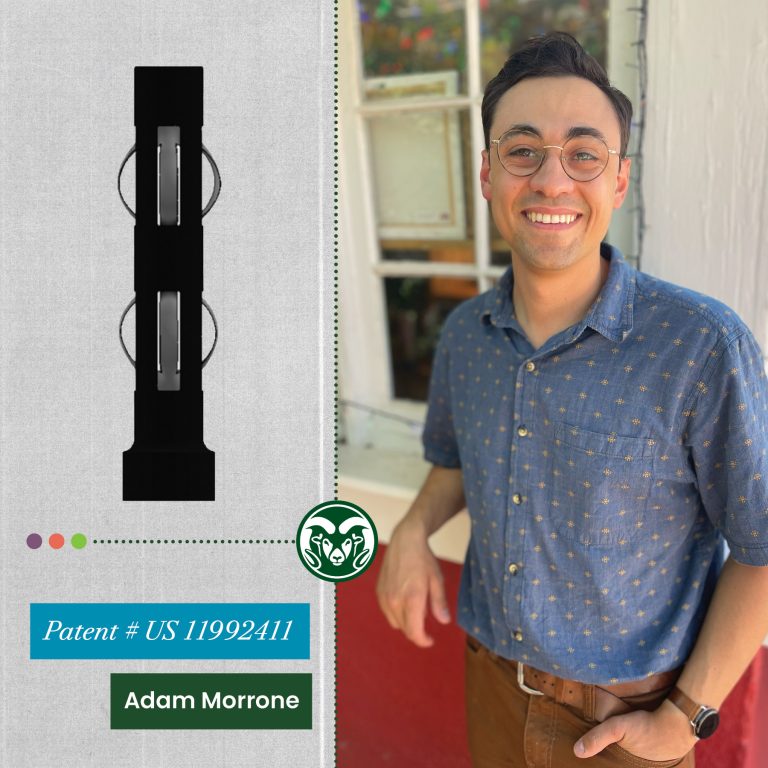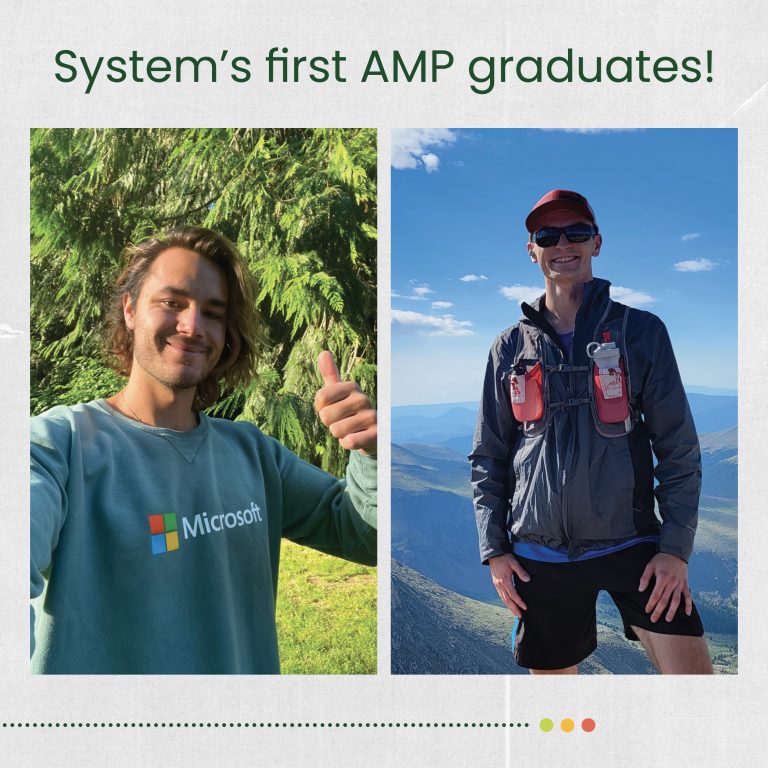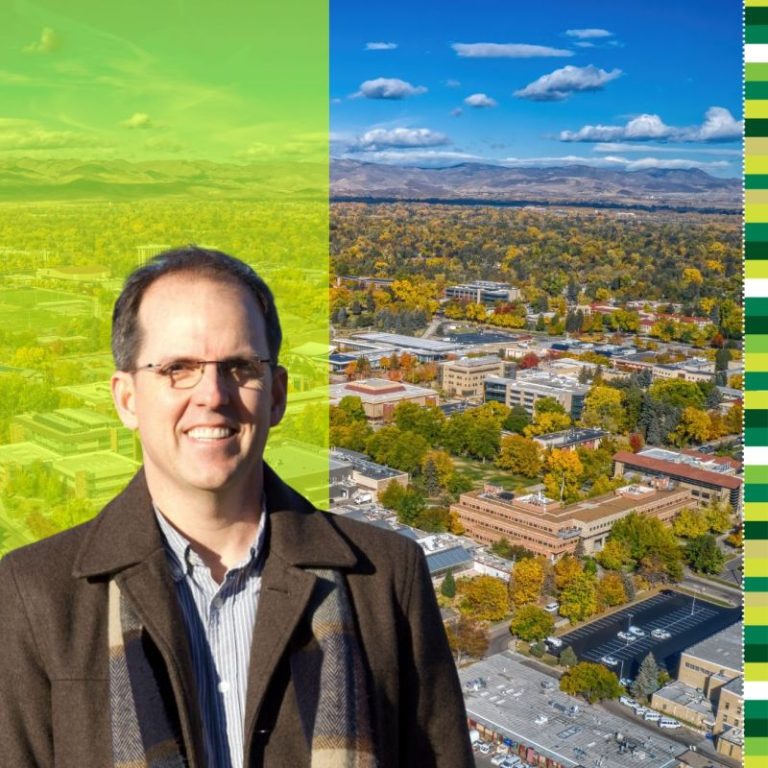Q&A: Humanitarian expertise comes to CSU Spur
as Systems Department adds new faculty member
- By: Kevin Fleming
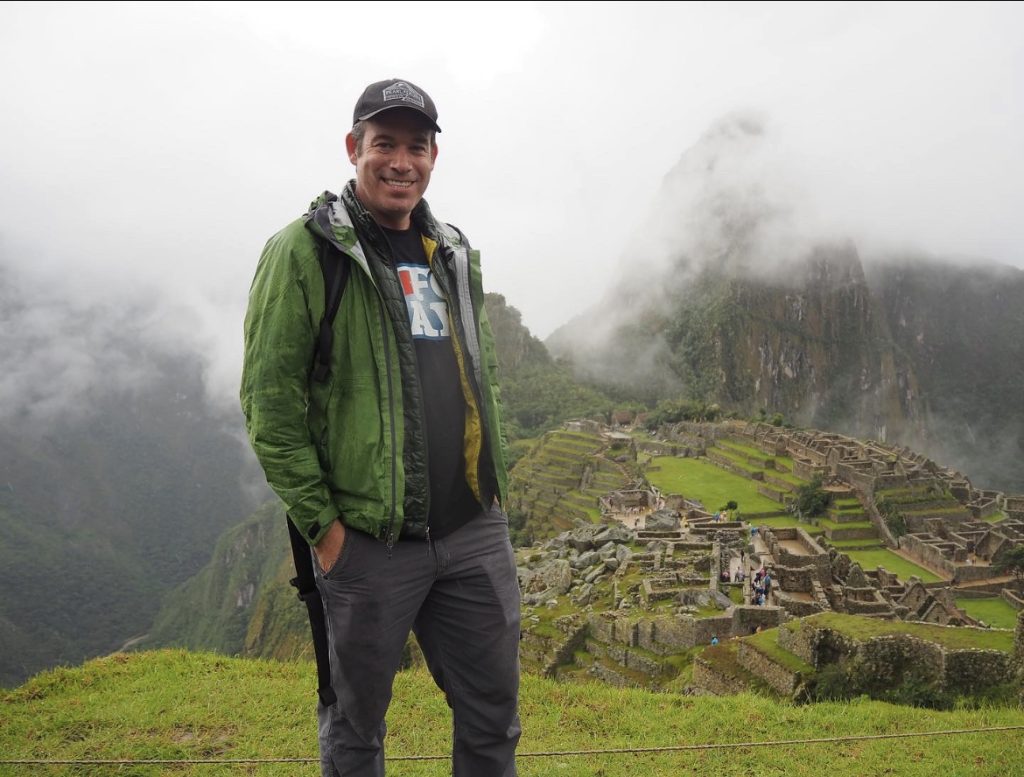
Associate Professor Aaron Brown joined the Colorado State University Department of Systems Engineering in late 2023. His office is located at CSU Spur in Denver, Colorado. He uses his specializations in sustainability and humanitarian systems to enhance the community as a resource for innovation and learning.
Brown earned his Ph.D. from the University of Colorado at Boulder in 2015 and comes to the department from Metropolitan State University of Denver where he was a professor.
To provide our students and partners with an introduction to Brown, we sat down with him for the following conversation. Read on as we discuss his background, expertise, and vision for the future!
The following Q&A was edited for length.
What inspired you to pursue a career in academia and teaching?
I had my first teaching position at a community college. I took the job to make ends meet because at the time I was racing bicycles professionally, and I wasn’t good enough to make a livable income. There was an opportunity to teach night classes in physics, so I took it. I discovered I was a lot better at teaching than bicycle racing! I really enjoyed watching students grow, learn, and helping them on their paths. Afterwards, I worked in industry and had some interesting and fun jobs. But the spark to go to academia had been lit and here I am now.
How do you intend to engage and inspire students in your classes?
What I appreciate about this department is the level of expertise and experience that the faculty have. I think that aligns with my teaching philosophy, bringing real world experiences such as my design experience on the Mars Curiosity landing mechanism and my humanitarian engineering work to support what I teach in the classroom. I find that students respond well when their instructors are supported well and when they can teach what they know.
Could you elaborate on your primary research interests and any ongoing or upcoming projects?
My research spans sustainable design, technology’s social dimensions, engineering education, energy systems, humanitarian engineering methodology and application and appropriate technologies. I am working right now on several projects, including a predictive/forecasting model using AI that aims to forecast Colorado river conditions more precisely. Aligned with this, I am exploring the data provided as an input for a decision-making tool to help build better capacity/reduce vulnerabilities for people, infrastructure and farmers affected by the river.
I am also interested in small scale compressed air energy storage. I think there are potentially interesting applications for this concept in many more engineering contexts.
How do you see yourself contributing to the community outside of your academic role?
I hope my humanitarian engineering work will continue to contribute to grow student perspective, and enrich and improve capacity for vulnerable communities both locally and beyond. I hope my work will inspire a richer, more just and secure world.
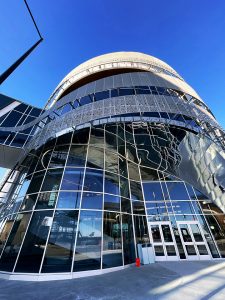
How do you envision leaving a lasting impact on Spur?
CSU Spur has promised to become an invaluable resource for innovation and advancement in the Denver Metro area. I want to help validate this promise by bringing my successful experiences in humanitarian engineering and sustainable systems to Spur. I plan to offer inspiring and engaging classes that connect with the Denver community.
Further, I see the opportunity to enhance the connection between our systems engineering department in Fort Collins and the Spur campus. The CSU systems department and Spur have a lot of similarities in our missions and in how we envision the world to be. My goal is to solidify and grow this connection, fostering a stronger collaboration that benefits both locations near Denver and in Fort Collins.
What aspects of Spur are you most excited about experiencing?
I am really excited about the mission of Spur and how it can be leveraged to improve outreach for the department and the university system. My excitement for this new role stems from the fact that Spur shares the same “systems focus” as we have in the department. Systems engineering transcends traditional engineering disciplines like mechanical and civil engineering. It involves tackling complex and multifaceted problems, often referred to as “wicked problems” in our field. Spur’s mission revolves around land, life, and water integration, and I see a direct connection to my work, particularly in humanitarian engineering where the emphasis is on people. Addressing human-centric issues is deeply complex, and Spur’s mission aligns well with my approach.
I see Spur as an excellent opportunity for our department to expand its outreach and be more accessible to students in the Denver area. It’s part of my role to be available for students, conducting classes and doing research with key partners there like the Colorado Water Center and Denver Water’s new water quality lab. I see tremendous potential for collaboration and impact in the various areas Spur addresses. The prospect of contributing to the growth and engagement of the department in the Denver community – and across the world – is something I’m excited to make happen.
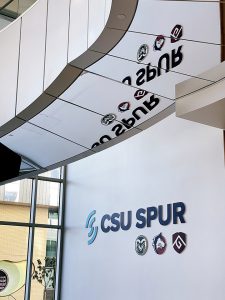
Are there particular skills or qualities you believe are essential for success?
Some of our more complex problems need systems approaches to solve them. Even though my background is in engineering, solving human-centered problems like the ones presented in my humanitarian engineering work often requires more than just a technology. So, I’ve studied and other fields like persuasive psychology, so that I can have a more holistic and hopefully more effective approach. I’ve learned that to have a truly systems mindset, we must also know how to integrate the soft skills into our systems.
I’ve worked with a wide diversity of people internationally and locally. Those interactions always resulted in lasting and important relationships that would not have been possible without deep consideration and respect for knowledge that we would not traditionally think of as engineering. Success requires that we integrate all our skills. I also think it’s important to have passion, optimism, creativity, the ability to learn from others, and a desire for collaboration.
What should your potential students know about you as an instructor?
I want my students to know that we are going to be inclusive and mutually supportive in my class. We will create a learning space together that understands our shared limitations and strengths. They will work hard, often independently and sometimes in teams, but never totally alone because I will make myself available to help. I hope my students will see me as supportive, that I bring my expertise but that I am still open to learning from new perspectives. I will strive to create a valuable experience for them, and for me. We are strengthened together, and we will learn together.
